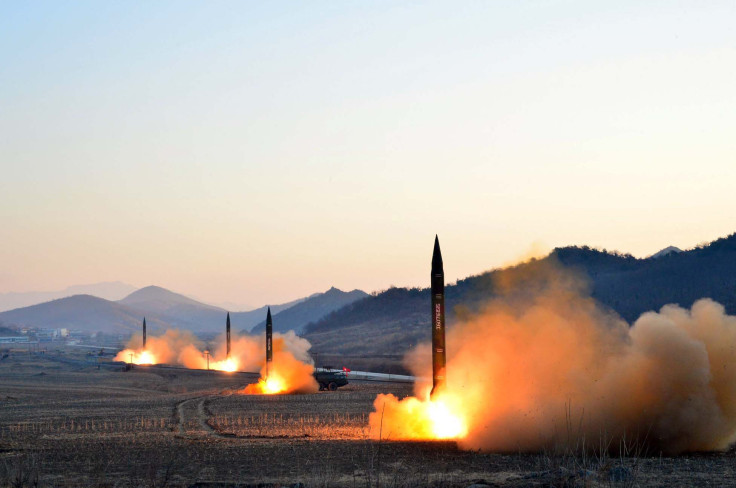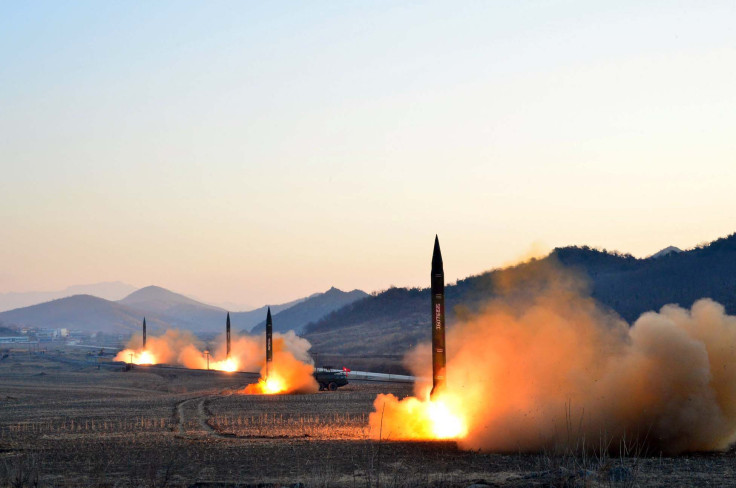Will North Korea Attack Japan? Government Tells Citizens How To Survive Nuclear Missile

In the event of a nuclear attack by North Korea, Japan is warning its citizens of how, exactly, they should protect themselves. In a 30-second television broadcast issued by the government, civilians were advised to take shelter in buildings, hide behind objects, protect their heads and lie face down on the floor should North Korea launch a missile their way.
The government also advised that the nation’s public warning system would be utilized to inform citizens if an attack occurred. The broadcast was set to air on 43 television stations nationwide and a written version was issued in 70 Japanese newspapers, according to the Telegraph.
Read: Otto Warmbier’s Roommate Recalls Day Of Arrest In North Korea
The warnings were issued on the heels of a separate set of “Actions to Protect Yourself” guidelines put forth by the government in April.
This is the Japanese government's advice for what to do if a North Korean missile is coming straight at you https://t.co/2YpgLsLmji pic.twitter.com/7dmYDHpnCl
— Anna Fifield (@annafifield) April 25, 2017
“Evacuate indoors during the initial phase of the attack and then evacuate appropriately following instructions given by administrative agencies,” the guide stated. “In case of evacuating indoors, evacuate to a robust building or underground shopping arcade nearby.”
In a separate portion of frequently asked questions, the guideline discussed how long it would take for a missile to get from North Korea to Japan.
“When a missile is launched from North Korea, it will not take long to reach Japan,” the answer stated. “For example, the ballistic missile launched from [North Korea] on February 7 last year took 10 minutes to fly over Okinawa.”
The government’s warnings came after repeated tests by North Korea believed to be aimed at developing intercontinental ballistic missiles. In March, three missiles launched by the North landed within Japan’s zone in the Sea of Japan between the two nations. North Korea is widely recognized to have the capabilities to reach Japan with a nuclear missile at any time.
Many civilians are taking the precautions to heart—sales of nuclear shelters and radiation-blocking air purifiers have exploded in the region, Reuters reported in April. One small company, in particular, received eight orders in a single month as compared to its usual six orders per year.
“It takes time and money to build a shelter,” Nobuko Oribe, the director of nuclear-shelter company Oribe Seiki Seisakusho, told Reuters. “But all we hear these days, in this tense atmosphere, is that they want one now. They ask us to come right away and give them an estimate.”
Following missile tests by North Korea, Japan said it would remain on high alert in response to the country’s actions.
Read: Can North Korea’s Nuclear Missiles Hit The US? Weapons Program Advancing ‘Faster Than Expected’
“Under the current stringent circumstances, we will maintain a high level of alert and take all possible measures,” Japanese Prime Minister Shinzo Abe said in April at a House of Representatives committee meeting. “Through close cooperation with the United States, South Korea, China and Russia, Japan will strongly demand North Korea refrain from provocative acts and abandon its nuclear and missile programs.”

© Copyright IBTimes 2024. All rights reserved.






















